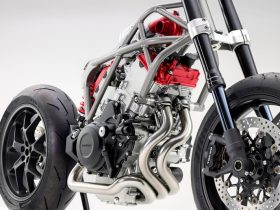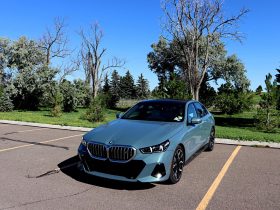 I’ve been itching to write this editorial article for some time and now that the famous VW #Dieselgate scandal has somewhat subsided. Now is as good time as any to see how the biggest carmakers in the world, GM, Toyota and VW have made a great case for electric vehicles (EV).
I’ve been itching to write this editorial article for some time and now that the famous VW #Dieselgate scandal has somewhat subsided. Now is as good time as any to see how the biggest carmakers in the world, GM, Toyota and VW have made a great case for electric vehicles (EV).
GM, Toyota and VW Pushed Electric Vehicles
It would seem strange to think that GM, Toyota and VW have pushed Electric Vehicles, EV onto mainstream consumers, but in many ways, they have. Each of these global carmakers have worked hard for, and even against EVs to the point of confusing consumers enough to turn to plug-in vehicles, PEV. What we mean by PEV are plug-in hybrids, PHEV and EVs only, no hybrids or fuel cell cars.
GM caught in the maelstrom of a global economic meltdown with nothing to show for, brought out a PHEV concept it insisted on calling a EREV (Electric Range Extended Vehicle), the Chevy Volt. That was the beginning. While the moniker was entertaining, it spelled panic and showing traditional carmakers were not obsolete. We test drove the very first versions of the Volt and were pleasantly surprised with the second generation. We even drove the brand new 2016 Chevy Volt and found it to be an even better improvement from the last one. More to follow on this.
It wasn’t until we drove the Chevy Spark EV that we realized GM signed the future of the electric drive. The Chevy Spark EV was not only fun to drive, it also had more torque then the current Corvette!
GM, Toyota and VW Pushed Electric Vehicles, Even Against Their Wishes
It’s certainly no breaking news that Toyota is not interested in pure electric cars, preferring the complexities of a hydrogen fuel cells, downplaying pure EVs. While this might ensure its dealership force recurring money with routine maintenance checks, it’s self defeating and a great gamble. It also won’t make the energy company unhappy to have drivers go back to the pump to “gas” up again, which they create. After years of asking the company to turn its then 6 years old Prius into a PHEV, it reluctantly did so almost ten years later. Many mom and pop shops had already turned the Prius into a PHEV with great success. Launched with little fanfare, the Prius PHEV sold out in a few short months, catching the company by surprise ans leaving many drivers asking for more… much more to deaf ears. Those who tested the quiet IQ EV test trial loved it so much, but were asked to not talk openly to journalists.
GM, Toyota and VW Pushed Electric Vehicles, VW Takes the Cake
The biggest carmakers couldn’t have pulled it off without the help of the less-than-ethical VW and its dieselgate scandal, Das Skandal! In all fairness, VW swallowed the humility pill and met criticism head on by with a mea culpa. It is now fighting the EU for higher diesel CO2 emissions.
VW, as with all German carmakers, were staunch defenders of diesel technology having poured billions into it. VW’s cheating scandal tipped the scale toward a public outcry of no more trust with these giant car manufacturers. The silver lining was that sales of PEVs and hybrids has skyrocketed in Europe. It’s funny how companies caught in a nasty place all the sudden become extremely creative and innovative. Many have promised EVs and PHEVs in the past with little results. Somehow Toyota returns unscathed despite four years of endless recalls. Let’s hope customers hold them to their words, this time.
While most of the specialized press has focused on where the real action is with the startup incumbents, namely Tesla Motors, these scandals have shaken an already distrustful weary buying base. Europeans are tired of distrusting big carmakers. In the U.S., where the beer is cold and gasoline cheap, things have quieted down a bit, but VW finally put a nail in the diesel coffin at last.
Thankfully, GM, Toyota and VW Pushed Electric Vehicles
We should really thank GM, Toyota and VW for having pushed EVs as much as they did. Toyota’s reluctance to embrace a full electric drivetrain has certainly raised suspicions and GM’s on and off push into EV territory made a great case for it. Still, none would have been the same without VW’s deliberate diesel emissions cheating. It once and for all pushed consumers toward more efficient and cleaner electric cars. So the question is who of the big carmakers will now rise to the challenge of EVs while startups take the lion share and prepare for tomorrow’s big players?







